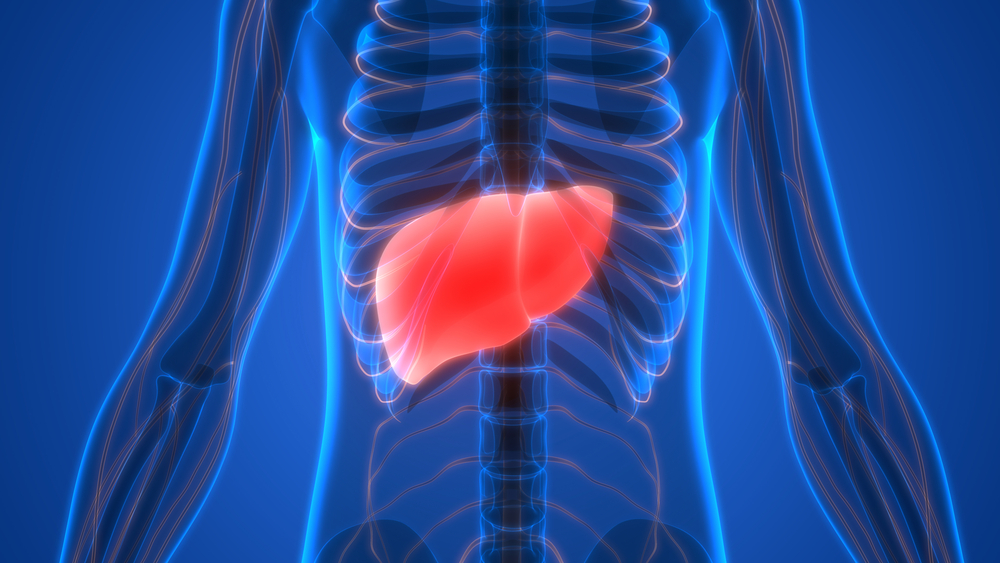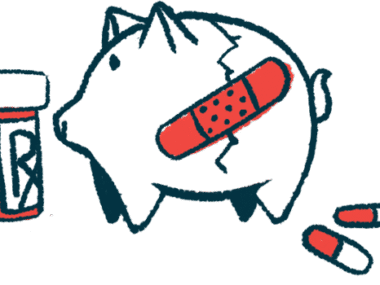VK2809 shows potential in treating NASH-related fibrosis in early study
Written by |

The investigative therapy VK2809 showed promising results in an animal study of non-alcoholic steatohepatitis (NASH), a type of non-alcoholic fatty liver disease, Viking Therapeutics, its developer, announced. The treatment’s safety and efficacy is also being evaluated in a Phase 2 study.
Liver fibrosis — the excessive accumulation of extracellular proteins, including collagen — is known to affect long-term outcomes in non-alcoholic fatty liver disease. Likewise, hepatic collagen levels are known to correlate with fibrosis progression and outcomes. Lowering fatty acids synthesis has been suggested as a way of improving markers of liver fibrosis in patients with NASH. Therefore, a therapeutic approach that could improve all these markers would represent a significant progress for liver disease patients.
VK2809 is a thyromimetic agent — meaning it produces effects similar to those of thyroid hormones — that acts specifically in the liver. This new, orally available small molecule shows early potential in a range of lipid disorders.
Viking evaluated oral doses of VK2809 (10 mg/kg/day) for eight weeks in a mouse model of diet-induced NASH. Prior to treatment, animals were biopsied to ensure consistency with the human form of disease, including the presence of fibrosis.
Treatment with VK2809 led to significant reductions in plasma triglycerides (a type of fat molecule), cholesterol, and liver collagen. Moreover, the drug candidate reduced liver fibrosis, evaluated by both histological analysis and by determination of the hepatic content of hydroxyproline (a marker of fibrosis).
Research further showed that, compared to controls, treatment with VK2809 induced a 40 percent mean improvement in all subcomponents of the non-alcoholic fatty liver disease activity score (NAS), which comprises inflammation, cellular ballooning, and steatosis (fatty liver).
Significant improvement in disease score was seen in 50 percent of VK2809-treated animals, and no treated animals showed a worsening in NAS. In contrast, disease activity increased in about 60 percent of animals in an untreated control group. VK2809 also showed promising safety and tolerability.
“We are excited about the initial results from this study, as they demonstrate promising effects in a model of NASH that we believe reflects many characteristics of the disease in humans,” Brian Lian, PhD, chief executive officer of Viking, said in a press release. The decreases in hepatic collagen, fibrosis and fat content suggest “potential benefits on endpoints important in NASH.”
Specifically, the reductions in collagen content and fibrosis are the first evidence “that treatment with a thyromimetic agent can potentially improve NASH-related fibrosis,” Lian added. “These results provide further support for the development of VK2809 in these settings.”
The safety, tolerability, and efficacy of VK2809 is currently being assessed in a Phase 2 trial (NCT02927184) in about 80 NASH patients with elevated LDL cholesterol. This study is expected to conclude in mid-2017.
Previous data showed that VK2809 suppresses the expression of genes involved in fatty acid synthesis while stimulating genes relevant in lipid metabolism. In addition, treatment with VK2809 resulted in a reduction of plasma triglycerides, LDL cholesterol, and levels of atherogenic proteins (those that promote the formation of fatty deposits in the arteries) of patients with mild hypercholesterolemia.
“The totality of published literature, combined with the effect of VK2809 on hepatic lipids, collagen content, fibrosis and NAS observed in the diet-induced disease model suggest an encouraging potential benefit in NASH,” Lian said.


